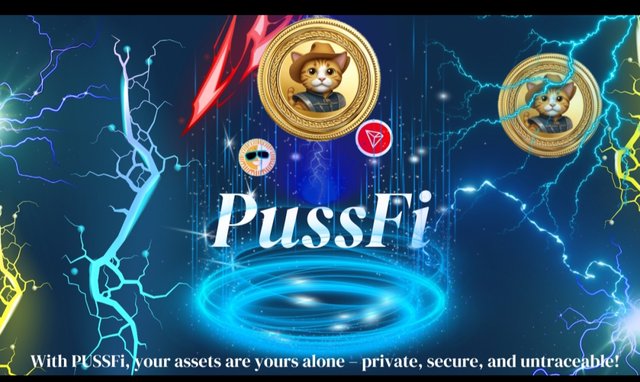INTRODUCTION
Safeguarding passwords and private keys is crucial to preserving digital possessions like Puss Coin. In the absence of these protective measures, users might lose access to their funds or fall prey to cyberattacks. Users of cryptocurrency need to understand different methods of secure password management and key storage to protect their holdings. Being informed enables users to fend off a variety of threats.
Many individuals make basic blunders while keeping passwords and private keys. Security breaches can occur due to having weak passwords, poor storage methods, or unnecessarily sharing private data with strangers. Due to the decentralized nature of cryptocurrency, there is no remedy to lost or compromised passwords and keys. Thus, such approach to security can be rather dangerous.
Puss Coin holders can learn tips to create sturdy passwords, securely store private keys along with other measures of precaution to protect their digital wealth. This guide looks into some of the most effective key and password management strategies and their corresponding effectiveness. Following these guidelines will enable investors to assume total responsibility for their assets while relieving a great deal of security concern.
DISABLING CLOUD SERVICES FOR THE STORAGE OF PRIVATE KEYS
The problem with storing sensitive data such as private keys on cloud services or online drives is that it puts them at great risk. Even though cloud service providers may offer a certain level of encryption, they can still get hacked. Cyber criminals can hack cloud based accounts and get access to the private keys and crypto funds with ease.
Instead of cloud storage, users should store their personal keys in offline environments. Unlike the aforementioned services, hardware wallets, encrypted USB drives, and even simple paper backups allow for safer storage of sensitive information. These options give greater assurance that the private keys will not be compromised by threat actors who take advantage of the internet.
In case there is a strong need to use cloud services, further measures must be taken. Private keys need to be locked behind a decryption password so that they are fully protected from prying eyes without permission. While this procedure ensures that private keys remain locked away, it is still not ideal over alternative offline methods.
ENABLING MULTI-FACTOR AUTHENTICATION (MFA)
Due to the various ways of gaining access to the system, Multi-factor authentication (MFA) is particularly crucial in improving security. The user has to provide a password, a device, or even biometrics. This way, unauthorized access becomes exceedingly difficulty.
In the use of crypto wallets and even in exchanges, MFA can prevent the accounts from being compromised. A hacker may fetch the password, but with MFA, they would still need the secondary verification factor. SMS verifies can be hacked through SIM swapping, so further security measures are required. Therefore, it is best to use an authenticator app.
MFA should be used wherever possible, including in linked email accounts with the crypto wallets. A hacker can take over an email account, reset passwords, and drain funds without the user noticing. This, therefore, ensures that a hacker does not easily compromise your account.
ESTABLISHING PASSWORD RECOVERY SECURELY
A secure recovery plan is crucial if passwords are forgotten or private keys are misplaced. Writing a seed phrase and keeping it in a few secure places can help regain access to funds if anything goes wrong.
Without a seed phrase, lost funds can become impossible to regain. It is an automatically generated set of words that serves as a backup for a crypto wallet. Seed phrases must never be stored digitally or given to anyone.
Some good practices would be putting seed phrases into fireproof safes, secured safety deposit boxes, or other physically secure locations. Others divide phrases beforehand into different sections and put them in different locations in order to gain more security.
IDENTIFYING AND PREVENTING PHISHING ATTEMPTS
Scamming attacks try to capture private data from the user, such as passwords or keys. Scammers create phony websites or emails that look like important and authentic sites, tricking users in providing their information.
Users must confirm website URLs prior to giving out any sensitive information. The use of bookmarks for official sites and refraining from clicking on unsolicited emails or messages assists avoiding phishing attacks.
Do not give out private keys or passwords to anyone claiming to be customer support, as it can be a phishing scam. Remember, there is no legitimate company asking for information such as these. Keeping vigilant and checking where messages came from is the ideal way to avoid being scammed.
CONCLUSION
Keeping private keys and passwords safe needs a lot of care, especially on online platforms. Refraining from using cloud storage protects the keys against cyber attacks, and multi-factor authentication (MFA) provides additional security. Properly configured recovery options provide needed security to funds, and being vigilant against phishing attacks results in better unauthorized access defense. These practices in combination protect against risks.



Upvoted! Thank you for supporting witness @jswit.
Downvoting a post can decrease pending rewards and make it less visible. Common reasons:
Submit
https://x.com/Memephiz148421/status/1888895894059172250
Downvoting a post can decrease pending rewards and make it less visible. Common reasons:
Submit
Thank you for sharing on steem! I'm witness fuli, and I've given you a free upvote. If you'd like to support me, please consider voting at https://steemitwallet.com/~witnesses 🌟
Downvoting a post can decrease pending rewards and make it less visible. Common reasons:
Submit
Downvoting a post can decrease pending rewards and make it less visible. Common reasons:
Submit